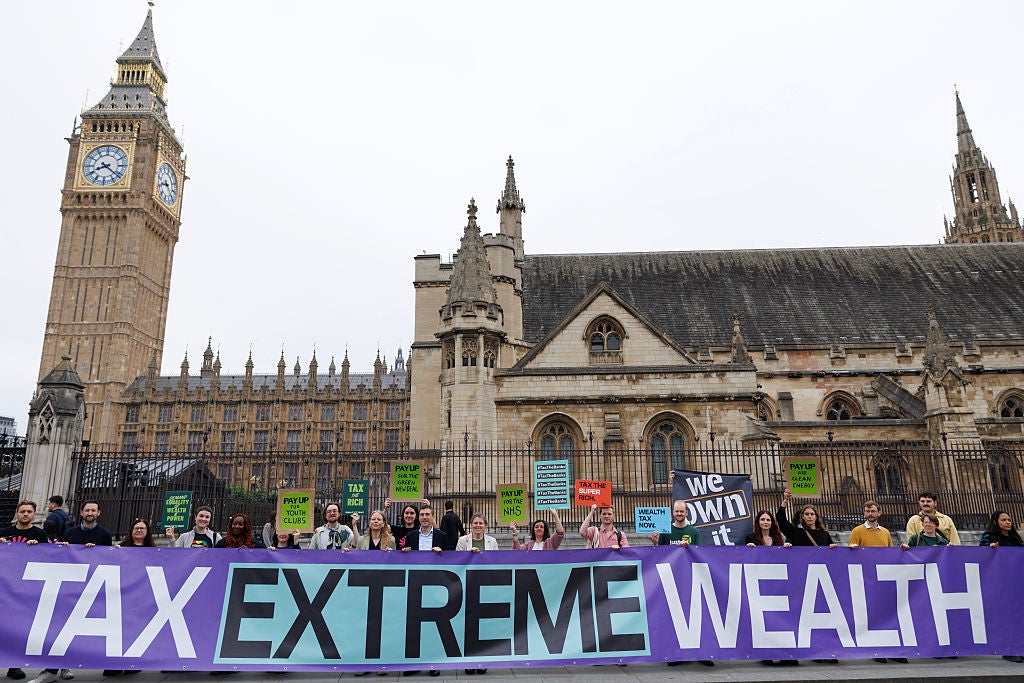On family holidays to Greece, we would look at the people living in unfinished buildings and revel in their laidback attitude. Except they weren’t being laidback, of course. What they were doing was avoiding paying tax on a completed property. With their climate, they could leave the ground floor open to the elements.
Something similar occurred in England and Wales. Have you ever looked at old houses and wondered why they went to the trouble of putting in windows only to block them up? That was because in 1696 there was a window tax – the more windows, the higher the levy. So, they filled them in. Same in Scotland, where they removed the roofs to avoid property tax. That’s why so many castles have fallen into ruin.
It will occur again if the left get their way and impose a mansion tax. Some bright spark will come up with a ruse for escaping the charge, probably finding a loophole in the precise definition and how it’s phrased, and a scheme will take off and be heavily exploited.
This is how it always is. In every country in the world, the national sport is minimising tax legally. Going down the illegal route is different and dangerous. Doing it while remaining within the law is seen as fair game – at least for those who can afford to employ wealth advisers who specialise in bending the rules.
Which is why the current push for the imposition of more taxes on the well-off will backfire.
This is what Rachel Reeves, the chancellor, is grappling with. Faced with an estimated £41.2bn deficit in the Treasury’s accounts, she is considering how to plug that yawning chasm. She can raise taxes, slash spending or increase borrowing. She will probably select the first: whacking up taxes. At this point, the siren voices will clamour for ordinary folks to be excluded and for the rich to bear the burden through an increase in the highest rate of income tax and targeting capital gains and inheritance duties.
They won’t notice it, is the mantra. Taxing the rich plays well to the redistributive ideology. What’s not to like? Except they will notice it – and they will do their utmost to dodge the bullet.

A previous Labour government under Harold Wilson hiked income and investment taxes to a combined 98 per cent, so Reeves has plenty of room to work with, in theory. Because how many people have ever paid that full amount? Very few, if any.
The tax-avoidance industry – and it is an industry – received its biggest fillip, devising all sorts of wheezes. Meanwhile, the Tories delighted in highlighting the disincentivisation of profit and wealth creation, and the long-term economic damage it was causing. Eventually, in 1979, Margaret Thatcher drove Labour from office. So much for egalitarianism.
It was ever thus. Remember how a few decades ago, all manner of unlikely individuals, among them Terry Wogan, Cliff Richard and Phil Collins, popped up as owning swathes of forest in Scotland? Or how backing films that never seemed to gain wide distribution, let alone make money, was the thing? Not so long ago, under Gordon Brown’s administration, the UK possessed the longest tax directory in the world, greater even than India’s, at 11,520 pages. We also control some of the globe’s most accommodating tax havens in the Channel Islands, the Isle of Man, the British Virgin Islands, Gibraltar and the Cayman Islands. There is plenty of scope for wriggling.
But this time, there is an added risk. Many will vote with their feet and quit the country – something that’s made much easier by today’s tech and transport, and aided and abetted by other nations dangling carrots to persuade them to relocate. Since last year’s October Budget, reports today’s Financial Times, some 3,790 company directors have gone. Some were non-doms who had their favourable tax status removed; the rest were probably wealthy people who were subject to Labour’s other measures aimed at them, saw the likely direction of travel, and quit.
As one bank CEO told me, they are in no doubt that, should Reeves go for unearned income by hitting company dividends, say, investors will leave. The “flight risk”, as he put it, is real. It’s happened before. Not for nothing were the 1970s known as “the age of the tax exile”, when the likes of Mick Jagger decamped. If Reeves is panicked into a wealth tax, she risks a massive exodus and little cash reward for her efforts.
No, the socialist heart may not like it, but the only realistic selection Reeves can make is to introduce a small, across-the-board rise in income tax. It’s the one step that will fill that funding gap. Anything else is tinkering, will not achieve the desired financial result, and – in terms of driving investment away and sending a ruinous international signal – will provoke more harm than good.
‘The whole tax system needs radical reform’: Readers on Reeves’ fiscal trilemma
Something has to give, chancellor – and that something is income tax
George Osborne is right – Britain can’t afford to ignore the new cryptocurrencies
Poll: Do you support the expansion of Heathrow Airport?
Of course I’d be happy for a trans employee to fit my daughter’s first bra
There’s a good reason why Lidl has stolen Aldi’s supermarket crown







